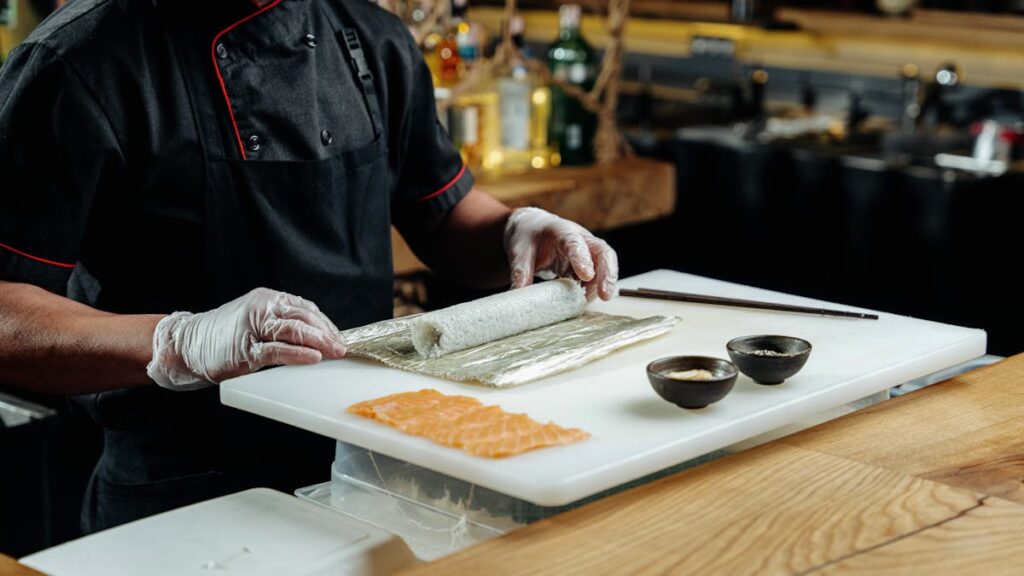If you’re planning to start a food business in Kenya, obtaining a food and hygiene license is a crucial step.
This license ensures that your establishment meets the required health and safety standards set by the government.
In this comprehensive guide, we’ll dive into the details of food and hygiene license cost in Kenya, the application process, and the importance of maintaining high standards of cleanliness in your food business.
First, Understand Food and Hygiene Licenses in Kenya
A food and hygiene license is a legal requirement for any business that handles, prepares, or sells food in Kenya.
This includes restaurants, cafes, bakeries, food trucks, and even home-based food businesses.
The license is issued by the county government’s public health department and must be renewed annually.
The primary purpose of the food and hygiene license is to protect public health by ensuring that food businesses adhere to strict hygiene and safety standards.
These standards cover various aspects of food handling, including:
- Food preparation and storage
- Personal hygiene of food handlers
- Cleanliness of the premises and equipment
- Waste management
- Pest control
Food and Hygiene License Cost in Kenya
The food and hygiene license cost in Kenya varies depending on the type and size of your food business. Here’s a breakdown of the typical costs:
| Business Type | Annual License Fee |
|---|---|
| Small restaurant (up to 20 seats) | KES 5,000 – 10,000 |
| Medium restaurant (21-50 seats) | KES 10,000 – 20,000 |
| Large restaurant (over 50 seats) | KES 20,000 – 50,000 |
| Bakery | KES 5,000 – 15,000 |
| Food truck or mobile food vendor | KES 3,000 – 8,000 |
| Home-based food business | KES 2,000 – 5,000 |
Note: These figures are approximate and may vary slightly depending on the county.
In addition to the annual license fee, you may also need to pay for the following:
- Application fee: This is a one-time fee paid when submitting your license application. It usually ranges from KES 1,000 to 3,000.
- Inspection fee: Before issuing the license, the public health department will conduct an inspection of your premises. The inspection fee is typically around KES 2,000 to 5,000.
It’s essential to factor in these food and hygiene license costs in Kenya when planning your business budget.
Keep in mind that failing to obtain or renew your license can result in hefty fines or even closure of your establishment.
The Food and Hygiene License Application Process in Kenya
To apply for a food and hygiene license in Kenya, follow these steps:
- Visit your county’s public health department: Obtain the necessary application forms and inquire about the specific requirements for your business type.
- Complete the application form: Provide accurate information about your business, including the name, location, type of food handled, and number of employees.
- Attach required documents: These may include a copy of your ID, business registration certificate, and proof of payment for the application fee.
- Submit the application: Present your completed application form and attachments to the public health department.
- Schedule an inspection: The public health officers will visit your premises to assess compliance with hygiene and safety standards. Ensure your establishment is well-prepared for this inspection.
- Pay the license fee: If your establishment passes the inspection, you’ll be required to pay the annual license fee.
- Obtain your license: Once the payment is processed, you’ll receive your food and hygiene license, which must be displayed prominently in your establishment.
The application process may take several weeks, so it’s crucial to start early and allow sufficient time before opening your food business.
Maintaining High Standards of Hygiene
Obtaining a food and hygiene license is just the first step; maintaining high standards of cleanliness and safety is an ongoing responsibility.
Here are some key areas to focus on:
Personal Hygiene
- Ensure all food handlers wash their hands thoroughly with soap and water before handling food, after using the restroom, and after touching any potentially contaminated surfaces.
- Food handlers should wear clean, protective clothing, including hairnets or hats, gloves, and aprons.
- Encourage staff to report any illnesses or infections immediately and exclude them from food handling duties until they recover.
Food Preparation and Storage
- Use separate cutting boards and utensils for raw and cooked foods to prevent cross-contamination.
- Cook foods to the appropriate internal temperatures to kill harmful bacteria.
- Store foods at the correct temperatures: cold foods below 5°C and hot foods above 63°C.
- Label and date all stored foods, and use the “first in, first out” (FIFO) principle to ensure older items are used first.
Cleaning and Sanitation
- Develop a regular cleaning schedule for all areas of your establishment, including kitchen surfaces, floors, walls, and equipment.
- Use approved sanitizers and disinfectants to kill germs and bacteria effectively.
- Ensure all cleaning supplies are stored separately from food items to avoid contamination.
Pest Control
- Implement a pest control program to prevent the entry and infestation of rodents, insects, and other pests.
- Seal any cracks or openings in walls, floors, and doors that may allow pests to enter.
- Store food in sealed containers and dispose of waste regularly to avoid attracting pests.
The Importance of Food Safety Training in Kenya
To ensure your staff is equipped with the knowledge and skills to maintain a hygienic food business, it’s crucial to invest in food safety training.
Many training providers in Kenya offer courses specifically designed for food handlers, covering topics such as:
- Personal hygiene
- Food contamination and foodborne illnesses
- Safe food handling practices
- Cleaning and sanitation
- Pest control
Some counties may require food handlers to undergo mandatory training and obtain a certificate before working in a food establishment.
Even if it’s not a legal requirement, providing regular training for your staff is an excellent way to reinforce good hygiene practices and keep your business compliant with health and safety regulations.
Conclusion
Obtaining a food and hygiene license is a vital aspect of running a successful food business in Kenya.
By understanding the food and hygiene license cost in Kenya, the application process, and the importance of maintaining high standards of cleanliness, you can ensure your establishment thrives while protecting public health.
Remember, investing in food safety and hygiene is not just about compliance; it’s about building a reputation for quality and care that will keep customers coming back.
Read also:


